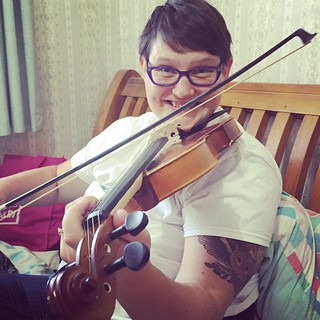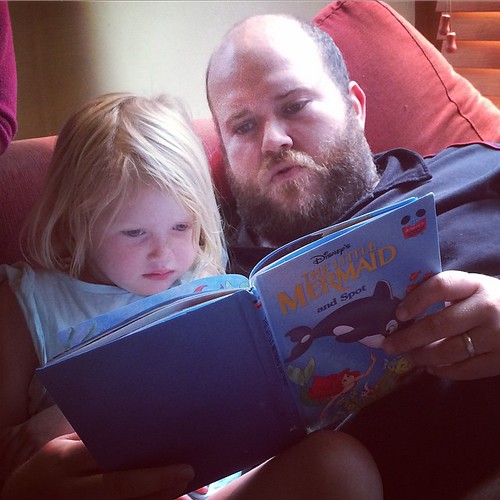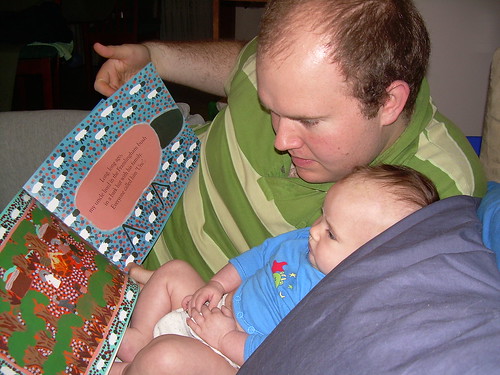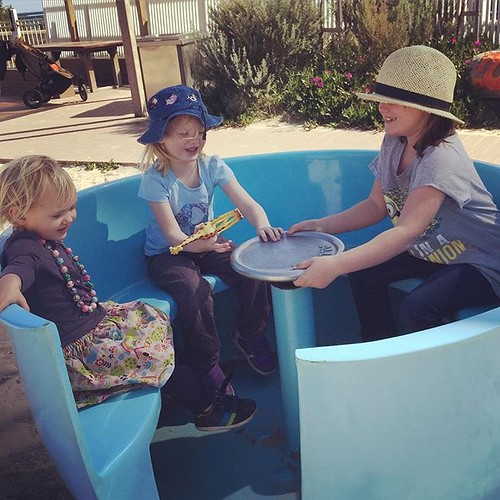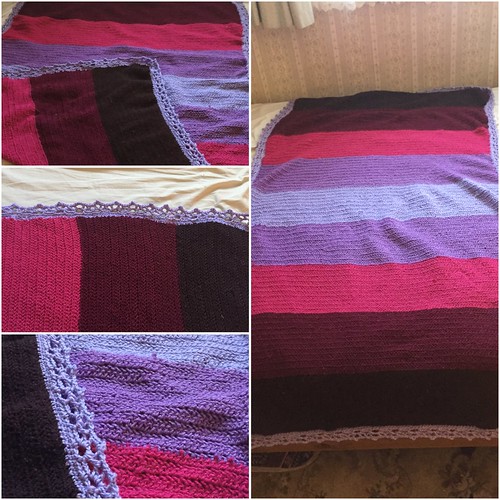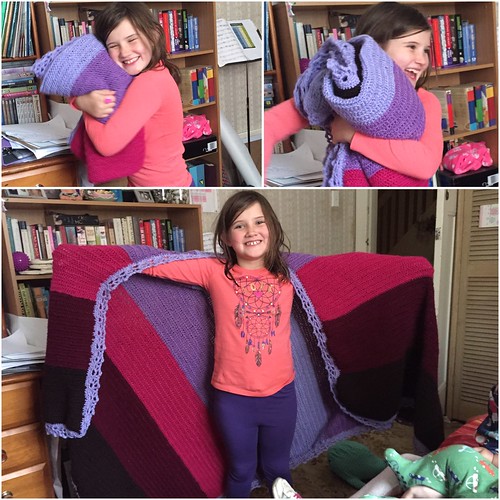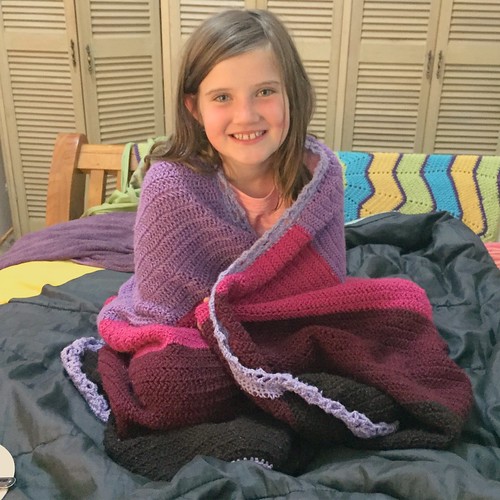"I had fun!" Our eight year old beamed as she came off court from her 68th game.
It was the first game of the new season and the first game she had ever played on an all girls side. Since February 2014 Gaia has played on a mixed community basketball team. Until last season there were always three or more girls on her team, but there was poor organisation in the lead up to the season and all the parents with daughters pulled their girls from the side, under the impression that there wouldn't be a mixed team. Our family missed all of this and signed Gaia up as we do each season, only to discover that she was the only girl and playing in a boys league.
Initially we didn't mind. I thought it may even help her skills...getting the same coaching given to the boys (because I had noticed that the boys sides tend to get more dedicated coaches). I played on mixed netball sides at her age and it made for some of the best sporting moments of my life. It had been suggested to me that she would become a more aggressive player and be unstoppable when she joined the girls league later. This turned out to prove false. Instead, we learned that the patriarchy is strong even in children under the age of eight.
I wasn't able to make it to a lot of her games that particular season. When she came home from games I would ask her how it went and want a blow by blow description, but she had very little to say. Sometimes all she would say was "I only got the ball once", or "I didn't get to touch the ball today". She didn't complain, though she was obviously disappointed. She was upset that the boys never passed to her. It was something all the parents noticed too.
Parents spoke to their sons about passing to Gaia (who was always free because no one on the opposing teams took her seriously either). But no matter how much we screamed from the sidelines they still searched for the one talented male player and passed to him, even if all five opponents were guarding him.
When she did get the ball the other team descended on her like a flock of vultures. The games that I attended I noticed that they were far more aggressive with her than with the others....if she had the ball she got shoved, pinched, grabbed, smacked, punched (as did the ball). As soon as she got the ball the other team were fouled. But then the ball would be given to one of her male teammates to throw in, rather than her....so even when she got the ball there was little she could do.
Because I hadn't been to a game in a while I
noticed a very big regression in her skill level when I returned court-side one day. She rarely went for
the ball, she'd lost her edge. When she happened to get the ball she
quickly got rid of it, she never held it for longer than a second,
passing to her male teammates, automatically assuming they'd know what
to do with it (and a message not so subtly screamed at her by the
teammates who hated when she got the ball because they had decided she
wasn't good because she was a girl. It had become a self-fufilling
prophecy, they never passed to her because she was a girl so her skills
regressed from lack of engagement). My heart broke for her when I saw the change. She used to be confident, she used to the be the kid on the side who got the ball from the enemy's end down to ours, pass it on and assist with the goal, if not shoot it herself. It also stung to see how much the boys had progressed.
I also noticed that Gaia's sex was impacting how she was trained. While our coach would yell instructions from the sidelines to the boys, he went silent when it came to Gaia. I didn't realise this until late in the season. Seeing the change in her I took to reminding her of her skill. I called from the sidelines, telling her to get in there, go for it, "Take it! Take the ball! SHOOT!" And she started to play more like her old self.
After that game the other parents were astounded. "She really listens to you!", "She does what you tell her!", "Amazing game, Gaia!", "You were on fire!" And then in struck me: I give her instruction, the coach doesn't. While he stood on the sidelines yelling instructions to the boys, but not Gaia...I'm assuming because girls are made of glass and if you give them loud direction in a sporting match they'll break? I pulled the coach aside after that and said "Don't be afraid to yell at her, like you yell at the boys. She can take it and she needs it. Look at how she played today. She needs more instruction." The coach took it on, but it was so late in the season, the damage was done and two weeks later we were at our break-up function.
There was an attitude problem too. At the end of each game it was an effort to get the boys to shake hands with one another, or to do so respectfully. It was this obligatory nuisance they did half-heartedly, avoiding eye contact and grunting at one another. Most of the time it was an effort to find a single player on the opposing side to shake Gaia's hand at all. It may seem like a small thing to "nit-pick", but it's not...it's about the culture we're creating, it's about the tone we set for this generation and how we teach them to enjoy sport. Shaking hands at the end of the game is meant to bring us back to the very point of sport: coming together for fun! What's the point of sport if not to learn how to be a good sport? We're meant to thank each other for the time and the challenge. And in terms of patriarchy and smashing it? Well, this is where it begins, it's in these tiny details that we begin to bring down the entitled bullshit that exists on a spectrum...where at one end we have kids who take their competitive sport too seriously to the other end where grown men commit assault.
At the start of the season my feminism told me: girls can do anything boys can, and being the only girl on court every game of the season was character building. But the season changed me too. I learned the importance of female only spaces. I saw the sweet little faces of 8 year old misogyny. I was astounded by how internalised the patriarchy had already become in these tiny little basketballers, some no older than six! And the equality based messages given by parents at training were a drop in the patriarchy's ocean. It was disheartening to see how those little boys had already come to swallow society's sexist messages. They were a boys club! Individually, they were nice enough kids, but ultimately they were a sexist boys club.
That season Gaia and I had to have some hard conversations. She faced sexual oppression, she learned that there are people in the world who think boys are better than girls and underestimate girls. She learned that you can't stand back and wait for boys to share what belongs to us all, you have to demand and take from boys. She learned that telling boys the difference between equality and inequality does nothing to change their actions. She may not have learned much about basketball, but she learned more than most men ever come to understand about sexual politics.
Her birthday pushed her up into the next age group and there are no mixed sides allowed from under 10s onwards. She never again has to play with or against males. Over the break she said to us "do you think my new team will pass me the ball?" and we told her we hoped so (cue glass shattering heart break sound).
At the first game of the Winter season none of the girls had met before (due to a mix up that meant there was no training before the first game). Despite a lack of history the girls pulled together and made a formidable team. There was clearly one stand-out player, but she shared the ball with her teammates, she congratulated their efforts and they all looked around for whom to pass to, rather than simply passing to her every time. The coach spread his attention evenly among the girls, and it felt amazing to watch our daughter receive some positive reinforcement and guidance. And the girls listened and took on board the instructions given to them, like "pass to X", they made smarter choices when it came to passes, they never tried to do it all single handed (which was a huge problem on the boys side!)
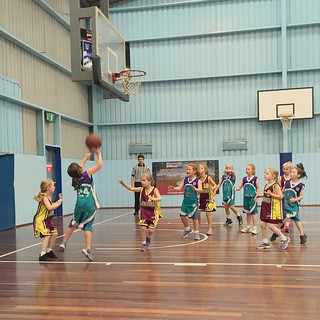 |
| Going for goal in her new team |
In one game it felt like Gaia got the ball more times than she had the entire previous season. She scored a goal,
she did her old move: getting the ball down to our end with speed, and the whole game she had this wide eyed look of ecstasy on her face. Basketball was fun again.
When she came off court she was positively beaming. She was completely surprised by how much fun she had experienced. And when she exclaimed "That was fun!" I was teary, realising just how oppressive last season had been for our joyful daughter. It's going to be a great Winter :D
Girls make for great sportsmen!
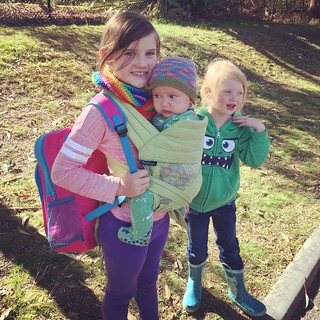
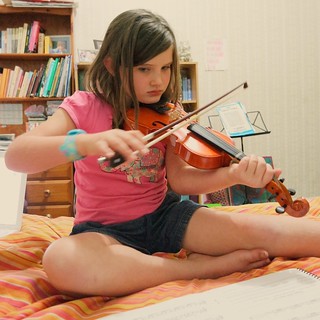 Gaia is ahead of me in Suzuki Violin Book 1, but I'm determined to keep up as best I can. Sometimes we play together (though she prefers if we play separately and listen to one another). She enthusiastically claps when I finish, no matter how terrible my performance, because she is proud of me for trying and she's excited to share this part of her that used to set her apart from the rest of the family, something she could only share with her teacher for half an hour a week. Now it's a game to play with Mum and a way to feel accomplished and knowledgeable as she educates me. Thanks to group lesson it is also a social affair she shares with many of her friends.
Gaia is ahead of me in Suzuki Violin Book 1, but I'm determined to keep up as best I can. Sometimes we play together (though she prefers if we play separately and listen to one another). She enthusiastically claps when I finish, no matter how terrible my performance, because she is proud of me for trying and she's excited to share this part of her that used to set her apart from the rest of the family, something she could only share with her teacher for half an hour a week. Now it's a game to play with Mum and a way to feel accomplished and knowledgeable as she educates me. Thanks to group lesson it is also a social affair she shares with many of her friends.